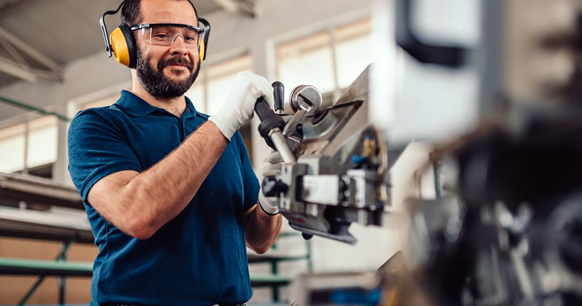How To Improve Productivity in the Manufacturing Industry

Manufacturing is the backbone of economic stability and growth, providing jobs, enabling technological breakthroughs, and delivering essential products to consumers worldwide. This industry is constantly evolving, facing new challenges, such as advancing globalization, fluctuating market demands, labor shortages, and increasing calls for sustainability. To remain competitive, manufacturers must balance operational efficiency with innovation, adaptability, and cost management. Learning how to improve productivity in the manufacturing industry will empower the workforce and enable manufacturers to unlock their full potential and thrive in an increasingly competitive and dynamic global market.
Streamline Manufacturing Processes
Conducting a thorough assessment of production workflows can help identify bottlenecks, redundancies, and inefficiencies within the process. Lean manufacturing principles, such as minimizing waste and optimizing resource utilization, can streamline operations to enhance productivity and output. Employing advanced automation technologies, like robotics and industrial machinery, can help standardize tasks and maintain consistent quality across the production line.
Invest in Training and Skill Development
To improve overall efficiency, businesses must focus on training their workers and equipping them with the latest industry knowledge. Continuous development programs for employees strengthen their expertise and boost their morale and engagement. Upskilling workers to operate advanced machinery or interpret data analytics effectively ensures the workforce can confidently adapt to technological advancements and business demands.
Leverage Innovations in Automation
The use of systems like gantry robots exemplifies the benefits of adopting advanced technologies. To improve precision, the different gantry robot applications in manufacturing can help businesses reduce operational risks and handle heavy workloads efficiently. These robots tackle repetitive and labor-intensive tasks, enabling human workers to focus on more complex or creative responsibilities.
Foster a Culture of Continuous Improvement
Implementing practices like Kaizen, which are small, incremental changes to processes, encourages employees at every level to contribute ideas that enhance processes and workflows. Regular team meetings, brainstorming sessions, and a focus on innovation promote collaboration and ensure everyone feels invested in improving outcomes. Improving productivity in the manufacturing industry with this approach enhances productivity while increasing employee satisfaction and fostering a sense of ownership over the organization's success.
Adopt Artificial Intelligence for Smarter Operations
From predictive maintenance and inventory management to quality inspection and demand forecasting, AI-powered tools provide data-driven insights that enable manufacturers to make informed decisions. The different ways AI in manufacturing continues to boost efficiency and innovation allow businesses to reach new levels of performance, driving growth and creating opportunities. By automating complex data analysis and streamlining logistics, artificial intelligence will enable manufacturers to respond to market demands quickly and remain agile in an evolving industry. Companies that adopt these strategies will enhance output and efficiency while creating a foundation for long-term success. Leveraging tools like robotics and AI allows manufacturers to meet modern industry demands confidently, ensuring resilience in a competitive marketplace.